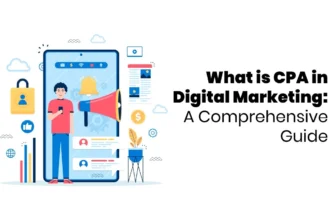In today’s hyper-competitive UK market, the single greatest asset your business has is not its product, its intellectual property, or its balance sheet. It’s the collective skill, knowledge, and adaptability of your team. Yet, a startling report from the Learning and Work Institute reveals that the number of UK employers providing training has plummeted to a record low, even as the skills gap widens.
The solution? Strategic investment in corporate e-learning.
But here lies the multi-million-pound question: with a dizzying array of online learning platforms flooding the market, how do you choose the right one? Making the wrong choice means wasted budget, disengaged employees, and a persistent skills gap. Making the right one, however, can unlock unprecedented growth, boost employee retention, and future-proof your business.
This is your definitive guide. We will dissect the landscape of online education learning, compare the titans of the industry, and provide a clear framework for selecting the best online learning platform that aligns perfectly with your UK business objectives and budget. This isn’t just about training; it’s about transformation.

Why Your Business Can’t Afford to Ignore Online Learning in 2024
Before we dive into the “how,” let’s solidify the “why.” Investing in an online learning system is no longer a “nice-to-have” perk; it’s a core strategic imperative with a measurable return on investment (ROI). The benefits of online learning extend far beyond a simple certificate of completion.
1. Closing the Critical Skills Gap
The UK is facing a digital skills crisis. Whether it’s advanced tech skills like deep learning and AI, or professional qualifications like CPA online learning, the talent pool is shallow. Relying solely on hiring is expensive and unsustainable. An online learning hub allows you to build the talent you need internally, creating a workforce skilled in high-demand areas. Think about the power of upskilling your existing team with courses in python learning online or data analytics.
2. Boosting Employee Retention and Engagement
A recent LinkedIn survey found that 94% of employees would stay at a company longer if it invested in their career development. Offering access to high-quality online learning courses shows your team that you are invested in their personal and professional growth. This fosters loyalty and significantly reduces costly employee churn. Modern platforms even incorporate elements of learning games online to make the process more engaging, turning skill development into a rewarding experience rather than a chore.
3. Unbeatable Flexibility and Scalability
Unlike traditional in-person training, online distance learning offers unparalleled flexibility. Your team members can learn at their own pace, from anywhere—whether they’re in London, Manchester, or working remotely. This model is also highly scalable. Whether you’re training a team of 10 or a department of 500, a robust online learning platform can handle the load seamlessly. This is a far cry from the logistical nightmare of coordinating physical training sessions.
4. Demonstrable Return on Investment (ROI)
While there is an upfront cost, the ROI is compelling. Consider the costs you save: travel expenses, venue hire, physical materials, and reduced employee downtime. Furthermore, a better-skilled workforce is a more productive and innovative one. According to a study by the Association for Talent Development (ATD), companies with comprehensive training programs have a 218% higher income per employee than those without. The investment pays for itself.
The Modern Landscape: Types of Online Learning Platforms
The term “online learning platforms” is broad. To make an informed decision, you need to understand the main categories.
1. MOOCs (Massive Open Online Courses) for Business
- Examples: Coursera for Business, edX for Business
- Best for: High-quality, academic-level content from world-class universities and institutions. If you want your team to learn from professors at Imperial College London or data scientists at Google, this is your category. They are excellent for deep learning, data science, and specialised business theory. The online learning agreement erasmus programs often utilize similar high-calibre platforms.
2. Learning Marketplaces
- Examples: Udemy Business, LinkedIn Learning
- Best for: A vast, diverse library of practical, hands-on skills. These platforms offer everything from english learning online for your international team to advanced courses on using specific software. LinkedIn Learning is particularly strong for professional soft skills, leadership, and creative disciplines.
3. Specialist Platforms
- Examples: Pluralsight, Codecademy, O’Reilly Online Learning
- Best for: Niche, in-depth training for specific industries. If you run a tech company, a platform like Pluralsight is non-negotiable for keeping your developers’ skills sharp in areas like what is machine learning and cloud computing. Similarly, a finance firm would heavily prioritize a provider with a robust CPA my online learning curriculum.
4. Learning Management Systems (LMS)
- Examples: TalentLMS, Docebo
- Best for: Businesses that want to create, host, and track their own proprietary training content. An LMS is the backbone of your internal training program, an online learning center that you control completely. Many businesses use an LMS in conjunction with a content provider for a blended learning approach.
The Ultimate Checklist: 9 Key Factors for Choosing Your Platform
Now for the critical part. As a UK business owner, use this detailed checklist to evaluate potential platforms. This framework will help you cut through the marketing noise and focus on what truly matters for your team and your bottom line.
1. Content Library: Quality, Relevance, and Breadth
This is the heart of any platform. A library with 50,000 courses is useless if none are relevant to your business needs.
- Action Points:
- Audit Your Skills Gap: Before you even look at a platform, identify the top 5-10 skills your business needs to develop in the next 12 months. Is it python learning online? Project management? Learning Spanish online for market expansion?
- Check for High-Value Courses: Specifically search for your must-have training. Do they have accredited CPA online learning pathways? Are their AI courses online free or part of the premium package? Is the content up-to-date for 2024?
- Verify Instructor Credentials: Look at who is teaching the courses. Are they recognized industry experts, university professors, or just hobbyists? Platforms like Coursera and edX excel here.
2. User Experience (UX) and Engagement Features
If the platform is clunky, difficult to navigate, or boring, your team won’t use it. Adoption is everything.
- Action Points:
- Request a Free Trial: Always. Navigate the platform yourself. How does “my online learning” dashboard look? Is it intuitive?
- Look for Engagement Tools: Does the platform use gamification, quizzes, or interactive projects? Tools like Kahoot have proven how effective this can be. Even a simple, engaging quiz can make a difference. For example, a daily “fun fact” quiz in your company’s learning channel could ask, “Which stock market exchange is recognized as the oldest in the world?” (Answer: The Amsterdam Stock Exchange).
- Assess Mobile Accessibility: Your team needs to be able to learn on the go. Test the mobile app. Is it as functional as the desktop version?
3. Analytics and Reporting Capabilities
For a business, this is non-negotiable. You need to track progress and measure the impact of your investment.
- Action Points:
- Review the Admin Dashboard: Can you easily see which employees are learning what? Can you track course completion rates and assessment scores?
- Check for Custom Reporting: Can you generate reports to show senior leadership the ROI of the training program? This is vital for justifying the budget.
- Look for Skill Path Tracking: Can you assign specific learning paths to individuals or teams and track their progress towards a defined goal (e.g., “Data Analyst Level 1”)?
4. Cost and Pricing Models (High CPC Topic)
This is often the deciding factor. The pricing models can be complex, so understand them thoroughly. This is a high-value area that attracts advertisers like financial and SaaS companies.
- Common Models:
- Per User, Per Month/Year: Common for LinkedIn Learning and Udemy Business. Simple and predictable.
- Tiered Subscriptions: Offer different levels of features and content access based on price.
- Pay-Per-Course: Less common for corporate plans but can be an option for highly specialized, one-off training needs.
- Action Points:
- Get a Custom Quote: Published prices are often a starting point. Talk to a sales representative and negotiate based on your team’s size.
- Clarify ALL Costs: Are there setup fees? Fees for premium content? Integration costs?
- Compare to the Cost of Inaction: Frame the cost not as an expense, but as an investment compared to the high cost of recruitment, low productivity, and employee churn.
5. Scalability and Customisation
Your business will grow and its needs will change. The platform must be able to adapt.
- Action Points:
- Ask about Future-Proofing: How does the platform handle a growing number of users?
- Explore Customisation: Can you create custom learning paths that combine courses from the platform’s library with your own internal materials? This is a key feature of a blended learning strategy. Can you brand the portal with your company’s logo and colours?
6. Integration with Your Existing Tech Stack
An online learning platform should not be an isolated island. It needs to connect with the tools you already use.
- Action Points:
- Check for HRIS/HRM Integration: Can the platform integrate with your Human Resources Information System (like Workday or BambooHR) to automate user management?
- Look for SSO (Single Sign-On): This allows your employees to log in using their existing company credentials, reducing friction and improving security.
- API Access: Does the platform offer an API for deeper, custom integrations?
7. Support for Diverse Learning Needs
Your team is not a monolith. It includes people with different roles, career goals, and even language preferences.
- Action Points:
- Language and Translation: For global teams, check for multi-language support and subtitles. This is crucial if you need tools like arabic to english translation online or have team members who are doing english learning online. Many platforms use AI similar to Google Translate for this.
- Professional Certifications: Does the platform support industry-recognized certifications? This is critical for roles in finance (CPA Australia, ACCA) and IT (AWS, Google Cloud). Look for dedicated CPA online learning paths.
- Variety of Formats: Does it offer video lectures, readings, hands-on projects, and peer-reviewed assignments to cater to different learning styles?
8. International and Regional Considerations
While your focus is the UK, it’s wise to see how platforms operate globally, especially if you have an international workforce.
- Action Points:
- Global Best Practices: It’s worth noting how other regions are innovating. For instance, the online learning nsw (New South Wales) Department of Education and learning online qld health in Australia have developed robust public-sector platforms, offering lessons we can learn about large-scale deployment and accessibility.
- Academic Partnerships: When dealing with international academic partnerships, you might encounter platforms like Italy’s unimib segreterie online or Germany’s RWTH online and TUM online, which highlights the importance of choosing a platform with broad recognition, like Coursera or edX, which partner with universities worldwide.
9. Acknowledging the “Free” Options
Many businesses are tempted by free online learning platforms like Alison online learning or the free tiers of larger sites.
- The Pro-Business View:
- Use Case: Free online courses can be excellent for supplementary learning, exploring a new topic, or for individual employees’ personal development.
- The Downside for Business: For a structured corporate training program, they fall short. They lack the administrative oversight, reporting, dedicated support, and curated learning paths essential for managing and measuring team development. The user experience can also be inconsistent, often with heavy advertising. Think of them as a library of books, whereas a corporate platform is a guided university curriculum with a dean to track progress.
A Deep Dive: Comparing the Top Contenders for UK Businesses
Let’s put our criteria to the test and review some of the best online learning platforms.
1. LinkedIn Learning
- Summary: Owned by Microsoft, this platform is seamlessly integrated into the world’s largest professional network. Its strength lies in its vast library of high-quality, expert-led courses on business, creative, and technology skills.
- High-CPC Focus: Excellent for corporate soft skills, leadership, sales training, and digital marketing. The direct link to employee LinkedIn profiles for showcasing certificates is a powerful engagement tool.
- Best For: All-around professional development, from junior staff to senior leadership.
2. Coursera for Business
- Summary: Coursera brings the prestige and rigour of top universities (like Stanford, Imperial College London) and companies (like Google, IBM) directly to your team.
- High-CPC Focus: Unmatched for deep-skilling in high-value areas like data science, AI, machine learning, and obtaining university-certified credentials. If you need your team to have verifiable, prestigious skills, this is a top choice.
- Best For: Tech teams, data analysts, and leaders who need cutting-edge, academic-level knowledge.
3. Udemy Business
- Summary: A curated selection of thousands of the top-rated courses from Udemy’s massive public marketplace. Its strength is the sheer breadth and practicality of its content.
- High-CPC Focus: Fantastic for hands-on, practical tech skills. If you need a developer to learn a new programming framework or learning python for a specific project by next week, Udemy Business likely has a highly-rated, practical course for it.
- Best For: Agile tech teams and businesses needing a wide variety of just-in-time, practical skills.
4. edX for Business
- Summary: Founded by Harvard and MIT, edX is a direct competitor to Coursera, offering rigorous courses from elite institutions. Their “MicroMasters” and “Professional Certificate” programs are highly respected.
- High-CPC Focus: Similar to Coursera, it’s focused on high-value, verifiable credentials in tech and business. It’s a premium choice for serious upskilling.
- Best For: Companies that prioritize academic credentials and want to offer structured, long-term learning paths.
5. Pluralsight & Codecademy
- Summary: These are specialist platforms for technology skills. Pluralsight offers in-depth video courses and skill assessments, while Codecademy provides an interactive, hands-on coding environment.
- High-CPC Focus: These platforms are laser-focused on the highest-value skills in the modern economy: software development, cloud computing, cybersecurity, and data science. Advertisers in the SaaS, cloud, and IT recruitment spaces pay top dollar to reach this audience.
- Best For: Any business with a dedicated technology department. This is a must-have tool for them.
Overcoming the Hurdles: Mitigating the Disadvantages of Online Learning
To present a balanced view, it’s crucial to acknowledge the potential downsides and have a plan to address them. The main disadvantages of online learning include:
- Lack of Personal Interaction: Learners can feel isolated.
- Mitigation: Implement a blended learning model. Combine online learning courses with weekly group check-ins, “lunch and learn” sessions, or peer-led project groups to discuss the material.
- Screen Fatigue: Staring at a screen all day is draining.
- Mitigation: Encourage “micro-learning”—breaking down learning into 15-20 minute chunks. Promote taking breaks and applying learning in an offline context.
- Requires Self-Discipline: Without a teacher present, some may struggle with motivation.
- Mitigation: Use the platform’s reporting tools to monitor progress. Have managers check in with their team members about their learning goals. Make learning part of their official performance objectives.
Staying Current: Your Daily Pulse on the EdTech World
The world of online education learning moves fast. To stay on top of trends, new features, and emerging platforms, you need reliable “live daily information.”
- Industry News: Follow publications like EdSurge, Training Industry, and the Financial Times’ coverage of education technology.
- Platform Blogs: The official blogs of Coursera, LinkedIn Learning, and others are the first place to announce new features and content partnerships.
- Follow Thought Leaders: Connect with Chief Learning Officers (CLOs) and EdTech experts on LinkedIn for daily insights and analysis.
Conclusion: Your Next Move
Choosing the best online learning platform is one of the highest-leverage decisions you can make for your UK business this year. It’s an investment in your people, your productivity, and your future.
The process doesn’t need to be overwhelming. By starting with a clear audit of your skills gap, using the detailed checklist in this guide to evaluate your options, and focusing on platforms that provide measurable ROI, you can select a partner that will empower your team and drive tangible business results.
Don’t just adapt to the future of work—build it. The right online learning programs are your blueprint.
Your call to action: Start today. Schedule a meeting with your department heads and ask one simple question: “What is the number one skill we need to learn to double our impact in the next 18 months?” The answers will be the foundation of your learning strategy.
Frequently Asked Questions (FAQ)
Q1: What is the best free online learning platform for a small business?
A1: While free online learning platforms like Alison or the free content on YouTube can be useful for individual skills, a small business will get a much higher ROI from a structured, affordable plan like Udemy Business or a starter package from a major provider. The analytics and management features are essential, even for a small team.
Q2: Can my team get professional certifications like a CPA through these platforms?
A2: Yes, absolutely. Many platforms have dedicated CPA online learning paths that provide exam prep and continuing education credits. Platforms like Coursera and edX also offer professional certificates from companies like Google, IBM, and Meta that are highly valued by employers. Always check for accreditation.
Q3: We need to improve our team’s tech skills. Where should we focus?
A3: For tech skills, specialist platforms are often best. Pluralsight and Codecademy are excellent for developers. For broader data science and AI skills, Coursera for Business and edX for Business offer university-calibre courses. You’ll find extensive options for python learning online, data analysis, and understanding what is machine learning.
Q4: How do I encourage my employees to actually use the online learning platform?
A4: Link learning to career progression. Create clear learning paths, celebrate learning achievements publicly, and have managers incorporate learning goals into performance reviews. Using a platform with engaging content and a great user experience is the first and most crucial step. Gamification elements, like those found in Doodle Learning or IXL Learning (though more for K-12, the principles apply), can also boost engagement.
Q5: What is blended learning?
A5: Blended learning is a hybrid approach that combines traditional, in-person training with online learning activities. For example, a team might complete an online course module individually and then come together for an in-person workshop to apply those skills to a real-world company problem. It’s often considered the most effective approach for corporate training.
Sources:
- Learning and Work Institute: [Link to relevant LWI report]
- LinkedIn Learning’s 2023 Workplace Learning Report: [Link to LinkedIn report]
- Association for Talent Development (ATD) Research: [Link to ATD study on training ROI]
- Coursera for Business: [https://www.coursera.org/business]
- LinkedIn Learning for Business: [https://www.linkedin.com/learning/solutions/business]
- Udemy Business: [https://business.udemy.com/]












